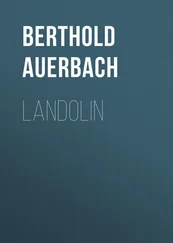Berthold Auerbach - On the Heights - A Novel
Здесь есть возможность читать онлайн «Berthold Auerbach - On the Heights - A Novel» — ознакомительный отрывок электронной книги совершенно бесплатно, а после прочтения отрывка купить полную версию. В некоторых случаях можно слушать аудио, скачать через торрент в формате fb2 и присутствует краткое содержание. ISBN: , Жанр: foreign_antique, foreign_prose, на английском языке. Описание произведения, (предисловие) а так же отзывы посетителей доступны на портале библиотеки ЛибКат.
- Название:On the Heights: A Novel
- Автор:
- Жанр:
- Год:неизвестен
- ISBN:http://www.gutenberg.org/ebooks/33294
- Рейтинг книги:4 / 5. Голосов: 1
-
Избранное:Добавить в избранное
- Отзывы:
-
Ваша оценка:
- 80
- 1
- 2
- 3
- 4
- 5
On the Heights: A Novel: краткое содержание, описание и аннотация
Предлагаем к чтению аннотацию, описание, краткое содержание или предисловие (зависит от того, что написал сам автор книги «On the Heights: A Novel»). Если вы не нашли необходимую информацию о книге — напишите в комментариях, мы постараемся отыскать её.
On the Heights: A Novel — читать онлайн ознакомительный отрывок
Ниже представлен текст книги, разбитый по страницам. Система сохранения места последней прочитанной страницы, позволяет с удобством читать онлайн бесплатно книгу «On the Heights: A Novel», без необходимости каждый раз заново искать на чём Вы остановились. Поставьте закладку, и сможете в любой момент перейти на страницу, на которой закончили чтение.
Интервал:
Закладка:
They turned into the park. The carriage drove slowly while they passed the lake, and Walpurga was ever saying:
"I feel as if I were in fairyland."
They alighted by the shady and fragrant Grove of the Nymphs. As soon as she had left the carriage, Walpurga, who was carrying the child in her arms, said:
"Open your eyes! Look about you! The whole world's yours. There are trees and meadows and, overhead the blue sky. But your father can't give you that; you'll have to earn it by being good, and if you and I both remain good, we'll meet again, up above."
"Sit down here, Walpurga, and pray cease talking," said Mademoiselle Kramer.
She was terribly anxious about Walpurga, who talked incessantly and incoherently, and was as unmanageable as a young foal that had just been let loose in the meadow.
For this reason, Mademoiselle Kramer again remarked: "Speak softly, and address all your remarks to me. I should be sorry if the lackeys behind us were making sport of you. Do you see the outrider over there? He is my nephew." Walpurga had not, until then, noticed that two lackeys, one of whom was Baum, were following them. The carriage was being driven up and down the side avenues. Suddenly Walpurga stopped, as if spellbound, before a marble figure.
"Isn't it beautiful?" asked Mademoiselle Kramer.
"Fie!" replied Walpurga. "It's abominable; and to think of men and women walking about here and looking at such an object."
When the old king had the statues placed in the park, Mademoiselle Kramer had deemed them objectionable, but as their majesties had found them beautiful, she had gradually come to look upon them in the same light.
They went into a side avenue, where Walpurga sat down on a bench and, falling into a reverie, soon knew as little of the world as did the child in her arms.
"Who's there?" said she, as if awakened from sleep.
Riding between two horsemen, she beheld a lady mounted on a glossy black steed. Her riding-habit was of blue and the long flowing veil fastened to her hat was of the same color.
"It looks like the countess."
"It is she, and now they dismount. His majesty the king and their royal highnesses the hereditary prince and princess, are with her. They are coming this way," said Mademoiselle Kramer. "Keep your seat. As nurse, you need not trouble about being polite."
But Walpurga could not help putting her hands up to her hat, in order to feel whether the tassel at the back and the flowers in front were still in place.
Mademoiselle Kramer begged their highnesses not to look at the sleeping child, lest they might awaken it.
Irma was the first to speak. "How deeply significant are all of nature's laws. The waking eye arouses the sleeping child. In the depths of every human soul, an infant soul rests sleeping, and it is not well to permit either sympathy or idle curiosity to disturb it."
"I would like to know how you always manage to have such original thoughts," replied the king.
"I don't know," replied Irma, playing with her riding-whip. "I've courage enough to say what I think, and that passes for originality. Nearly all human beings are changelings. They were changed while in the cradle of education."
The king laughed. Walpurga, however, quickly turned her thumbs inward, and said:
"Changelings. It's wrong to speak of anything of that sort before a child that's less than seven months old, for the evil spirits are all powerful up to that time, even if the child is christened."
In order to exorcise any evil spell from the child, she breathed upon it thrice.
The princess looked sadly at the nurse and the child, but did not utter a word.
"I don't understand a word of what the nurse says," remarked the hereditary prince.
Walpurga blushed scarlet.
"Why do you look at me so?" asked Countess Irma, "don't you know me?"
"Of course I do, but do you know who you look like? like the Lady of the Lake. When she rises from the waves, her dress hangs about her in a sea of folds just like yours."
Irma laughed, while she, in High German, told the prince and princess what the nurse had been saying. The prince nodded to Walpurga much as he would have done with a dumb animal to which he could not render himself intelligible.
"But Countess Irma's feet are not swan's feet. Don't believe that, Walpurga," said the king laughing. "Come, 'Lady of the Lake.'"
They mounted their horses and rode away.
It was time for the prince to return.
On their return, they at once repaired to the new apartments on the ground floor, into which everything had been removed during their absence.
They now had sunlight at all hours of the day. The apartments opened out on the park, where the blackbird sang in the broad daylight, and where the breezes were laden with the odor of the orange bushes. Tall trees were whispering in the wind and a great fountain was constantly murmuring and plashing.
Walpurga was quite happy, and the fountain was her greatest delight.
"It's far more comfortable on the first floor," she would often say; "I feel as if I'd just returned from a long journey. The rooms are so nice and cool, and my night-watchman sleeps in the daytime just as a night-watchman should, and-and-"
And Walpurga, too, fell asleep, although 'twas daylight.
CHAPTER II
Walpurga soon accustomed herself to her changed mode of life. She was often concerned because she received no tidings from home.
But if there were no letters, there was a messenger at all events. A servant entered the room and said:
"There's a woman outside, who comes from the same place as Walpurga. She wishes to speak to you for a few moments."
"I'll go to her. Who is it?"
"No," said Mademoiselle Kramer; "receive her here."
The servant went out at once, and returned, bringing old Zenza with him.
"Oh, is it you, Zenza? Have you brought me anything from my child, my husband, or my mother? For God's sake, has anything happened? Are they sick?"
"No, they're all well, thank God, and send their love to you."
Walpurga, with an affectionate glance, gazed into Zenza's cunning eyes, which now seemed good and truthful, because they had seen her child. Smiling, Zenza went on to say:
"I'm glad you still know me. How bad the folks are. They told me you wouldn't recognize me, because you'd become a fine lady. But no, you always were a good girl, and I've always said so."
"Yes, yes, that's all very well; but what do you want of me?"
"I want you to help me. If you don't, my son Thomas will take his life and I'll drown myself in the lake. You'll help me, won't you? See, I'm kneeling at your feet. You must help me. Your dear father and I were almost cousins, and if your father were alive, he'd say what he's now calling down to you from heaven-'Walpurga, if you don't help Zenza, I'll never forgive you.'"
"Get up! What's the matter? How can I help you?"
"I won't get up. I'll die at your feet unless you promise to help me."
"I'll do all I can for you."
Mademoiselle Kramer interposed and said that unless Zenza would calm herself, she would not be allowed to remain in the room another moment.
Zenza arose and asked:
"Is that the queen?"
Walpurga and Mademoiselle Kramer laughed at her question, and Zenza at last made known her wish.
Her son Thomas, she said, was standing down there before the palace, as the guard would not allow him to enter. He had been caught poaching and, as it was his second offense, he had been sentenced to two years' imprisonment. And yet he was not to blame. It lay in his blood. He must go hunting. His father had been that way before him. He had only shot one little chamois buck and for that he was to go to jail again. He had sworn an oath that, before he would let them lock him up, he would take his own life or else commit a murder, so that they might behead him at once; and Zenza went on to say that Walpurga would have two, – nay, three human lives on her conscience if she did not help them; that Walpurga must procure her an audience with the king or queen, so that she might, on her knees, beg them for mercy.
Читать дальшеИнтервал:
Закладка:
Похожие книги на «On the Heights: A Novel»
Представляем Вашему вниманию похожие книги на «On the Heights: A Novel» списком для выбора. Мы отобрали схожую по названию и смыслу литературу в надежде предоставить читателям больше вариантов отыскать новые, интересные, ещё непрочитанные произведения.
Обсуждение, отзывы о книге «On the Heights: A Novel» и просто собственные мнения читателей. Оставьте ваши комментарии, напишите, что Вы думаете о произведении, его смысле или главных героях. Укажите что конкретно понравилось, а что нет, и почему Вы так считаете.












